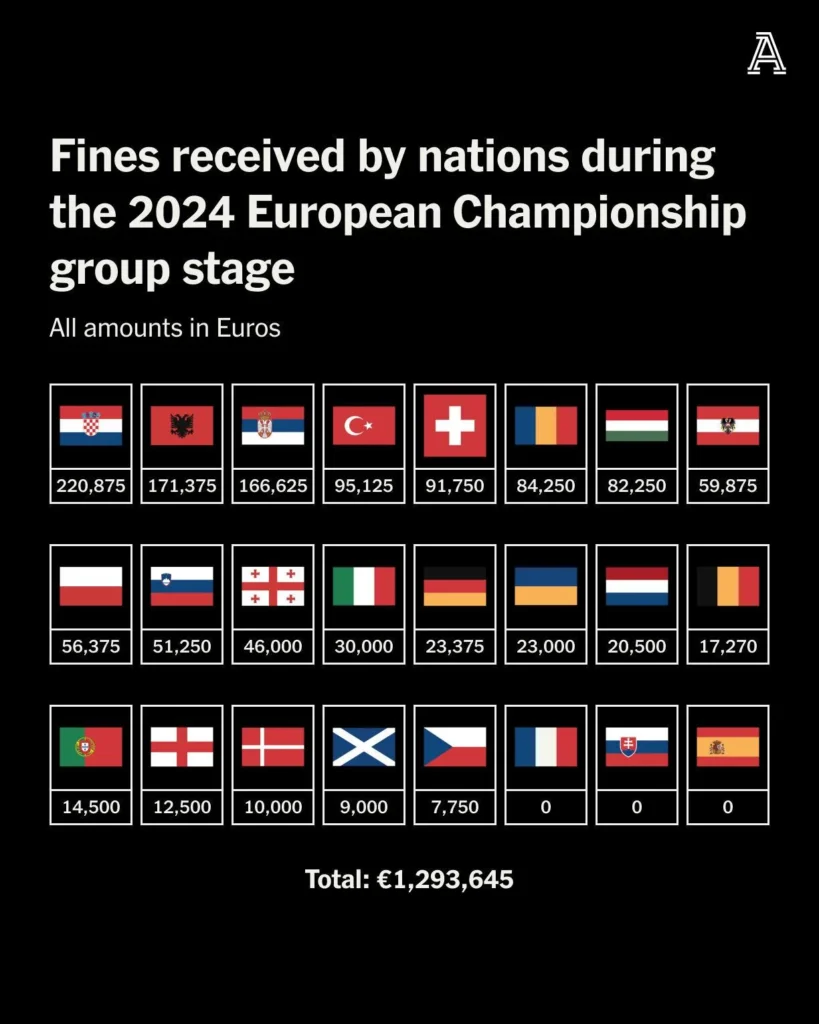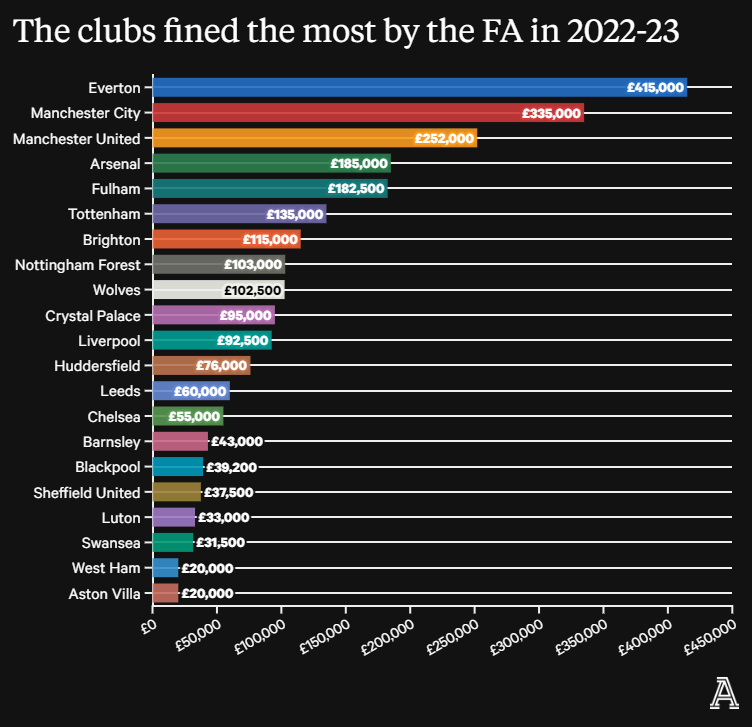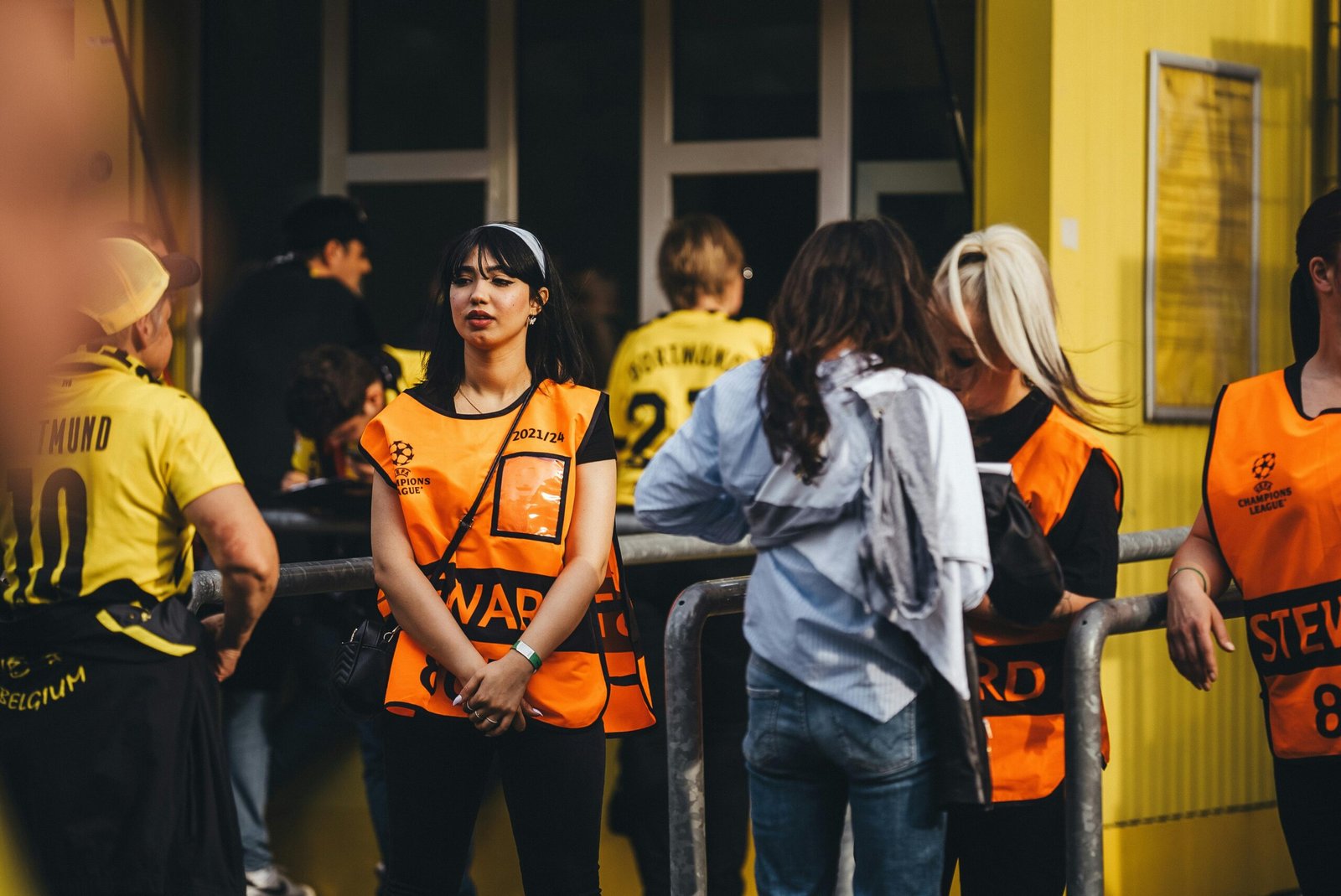Football clubs have a hard job to master – keeping fans entertained and safe. Even with all the right stadium security measures, clubs are still on the receiving end of punishments for the actions of their fans. In some countries, like Switzerland, clubs get in trouble for bad fan behavior even outside the stadium, where they have no control.
It’s like punishing a player who wasn’t even nominated for the game.
This is especially unfair because over 95% of fans behave well but still suffer because of the troublemakers. International football bodies may punish clubs by awarding different scales of football fines, all the way to forcing the club to play in front of empty stands. Natural question comes – why should the entire club and innocent fans suffer instead of individuals who are responsible for the mess?
One reason is that there aren’t good systems to identify and prevent specific troublemakers from entering on following occasions.
To start, it is important to acknowledge the importance of supporter liaison officers. They are the extended arm of the club who regularly talk to the fans. They understand what fans need and help find ways to help them create a better atmosphere. In the end, football is played for the fans. Everyone, including the club and the players, is happier when fans are loud and cheer strongly during the games.
Often though, fans cross the line by:
- Invading the field
- Throwing objects, like cups, onto the field
- Lighting fireworks or other items
- Using laser pointers or similar devices
- Making racist, political, or ideological statements
- Damaging the stadium
- Fighting among themselves and risking harm to other fans
No one wants to see this because it hurts the club’s image and keeps families and older people away. This is especially worrying because 3 out of 4 fans become fans before they turn 18. If parents are afraid for their children’s safety, the club might face long-term problems with attracting a new generation of fans.
Some clubs have tried a non-intrusive solution by giving fans a matchday budget for allowed items. If the club receives a fine, the amount is taken from this budget. This method worked well, cutting fines in half in the first season and eliminating them in the next. However, many other clubs criticized this approach, saying it’s not effective when tackling stadium security.
But what is the cost of inappropriate fan behavior?

Facial Biometric Ticketing Comes to the Rescue
In our last article, we highlighted the importance of allowing ticket transfers to avoid no-shows. This is crucial because matchday revenue includes not just ticket sales, but also money from merchandise, food, and drinks. Thus, you could argue that solving no-shows should be number one priority. But there is an exception.
As an operations or security manager, if you had to choose between an empty seat or one occupied by a troublemaker, we’d recommend the empty seat. Sounds illogical?
Let’s break it down from the perspective of the EURO 2024 tournament. It’s a different setting from club football, as many incidents in tournaments arise from disputes between neighboring countries or other tensions. However, it’s similar to intense club derbies where long-standing rivalries lead to fan conflicts.
At the championship in Germany, UEFA fined teams €1.29 million just in the group stage. Croatia paid over €220,000, with Albania and Serbia each exceeding €100,000. These hefty fines were for only three games per country, so the total would be much higher if games were played weekly.

And it turned out to be true, with fines totaling €1.8 million for the tournament. This was despite three of the most fined countries leaving in the group stage. The most common offense was throwing objects, mainly cups, which happened 38 times. And I had the chance to experience it live from the Belgian fans in Frankfurt.
Direct Fines Are Just the Tip of the Iceberg
If the issues were limited to throwing cups, the damage might be manageable. But the problems didn’t stop there. Croatia, Serbia, Hungary, Romania, Austria, and Albania were fined an extra €220,000 for racist behavior. On top of this, Croatia was banned from selling tickets for its next UEFA away match, and Austria faced a two-year suspension on selling away game tickets.
Bans on ticket sales can seriously hurt clubs. In the Premier League, such a ban could cost between €250,000 for a club like AFC Bournemouth all the way to €4.64 million for Manchester United. That’s a significant loss compared to the matchday earnings.
Let’s look one level deeper and analyze Everton FC, which had the highest fines in the 2022/23 season, nearly €492,000. If they faced a ticket sales ban, they would lose an extra €699,000. Combined, these costs would total €1.19 million. For big clubs, this might not seem huge, but for a club that earns €20.5 million from gate entries, it’s 5.8% of that revenue.
That’s a lot of money which could be spent in a more efficient way, especially when the club is already struggling on the field in the past seasons.
The worst part is that all these issues can stem from just one poorly managed game. So, what are the reasons behind it?

Staff Can’t Handle Stadium Security without Good Technology
At the start of the article, I said that clubs struggle with checking if the ticket holder is the same person entering the stadium. Thanks to utilizing high resolution cameras within the stadium walls, they have become more efficient in identifying troublemakers. That’s step one. Success!
Next, the club adds these people to a ban list to keep them from coming back and hoping to enhance their stadium security. Once again, great job! Step two accomplished.
The real problem is stopping banned people from getting in. And here’s why staff are a big part of the issue. A study of 40 security managers in the USA found that staffing shortages are a major challenge 95% of the time. This problem also happens in Europe, like in Belgium. Laws limit how much clubs can pay their stewards, and the pay is very low—about €45 per game. This low pay means only the most dedicated staff stick around, who do it out of love for the club rather than for the money. Although clubs compensate with free food, drinks, or gas payments, the total is still too low.
With weekly games, tens of thousands of fans come through the gates, and all the pressure falls on the staff to spot banned individuals and keep them out.
Let’s be honest, it’s like expecting the referee to spot every foul on the field. Even with VAR, it’s still tough, and before that, it was even harder. The difference is, a mistake in stadium security can be much more costly as there is more at stake.
In fact, 7 out of 10 experts claim that fan behavior has gotten worse over the last 10 years, mostly due to fights and property damage. When fan behavior gets worse but security doesn’t improve, things won’t get better. In fact, 71% of those surveyed believe there aren’t enough security records of fans entering stadiums. This highlights the lack of control at entrances and shows why stronger security measures are needed.
We also agree that just hiring more staff won’t solve the problem. Manual checks are prone to human error. What’s really needed is the correct technology. Wembley Stadium spent €5.68 million on security upgrades after the Champions League final chaos but still didn’t get the results they wanted. In the U.S., clubs are starting to get it. In fact, 68% of stadium security experts say facial recognition cameras are key, and we believe this tech is the best solution too.

Stadium Security Checks Can Be Done without Compromising Entry Speed
Every operations and security manager knows how important it is to keep fans moving smoothly into the stadium. In fact, 87.5% of surveyed security leaders in the US ranked reducing wait times without cutting security as their top goal. Strong safety is often seen as slowing things down, but let us prove that wrong.
First, you need to make sure only authorized people can get a ticket. This means not only should banned fans be blocked, but no one should be able to give them a ticket either. By using identity verification when tickets are bought, clubs can secure their initial layer of protection. It ensures one fan, one ticket, one identity—stopping any ticket manipulation before they even reach the gate.
With facial biometrics, the fan’s face becomes their ticket. No need to scan a paper ticket; a smile at the gate is all it takes. The system ensures only the right people get in, keeping troublemakers out.
You can’t lose it, forget it or have it stolen. It’s always with you.
This comes with multiple benefits.
For example, Ferencvárosi TC saw a 47% boost in commercial income and a 48% rise in matchday revenue after introducing biometrics into their stadium operations. By eliminating troublemakers, they expanded their fanbase across the country and attracted new segments.
Even more striking is the example from Palmeiras in Brazil, which was able to arrest 39 people under warrant and solve a crime involving a major drug trafficker—all while speeding up the entry process threefold.
Clubs should view stadium security not as a cost, but as an investment.
Despite some people having initial concerns, facial biometrics have proven to be the most efficient way to secure stadiums and prevent incidents. This not only protects the club’s image but also avoids costly fines and loss of matchday revenue, which can impact a club’s annual earnings.
As we like to say, be two steps ahead—don’t just fix problems, prevent them.






